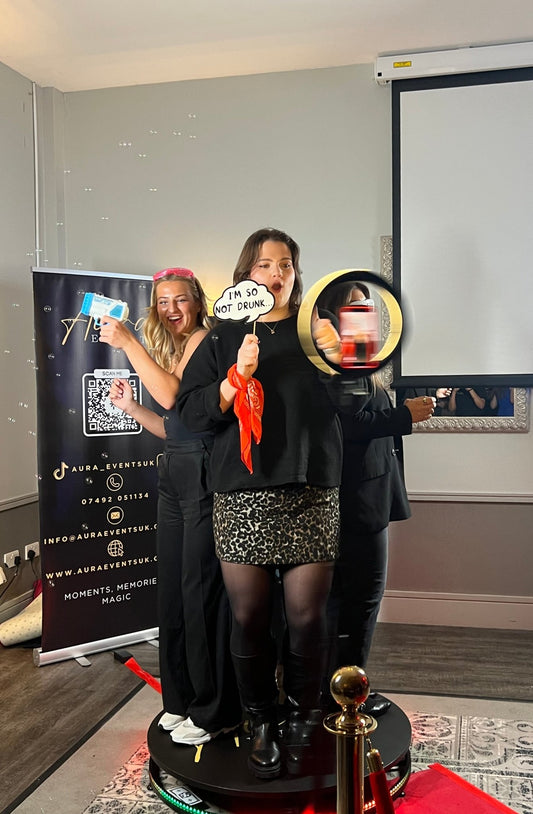Live Event Production UK has become a vital part of the events industry, combining creative design, advanced technology, and meticulous planning to deliver memorable experiences. In today’s competitive market, event organisers and planners rely on data, research, and innovative tools to meet the growing needs of corporate events, product launches, conferences, and gala dinners. This article provides a fact-based look at the live event production landscape in the UK, discussing trends, best practices, and future developments. Drawing on data from Statista, IBISWorld, and insights from institutions like Birmingham City University, this guide is designed for businesses, event management companies, and private clients looking for full-service event management solutions.
1. Introduction to Live Event Production UK
Live event production involves the planning, design, and execution of live events that can include conferences, corporate events, brand activations, and more. It requires the coordination of many moving parts—from venue selection and technical production to marketing and logistics. In the UK, the live event production industry has seen significant growth, driven by advancements in event management software and the increasing demand for hybrid events that combine in-person and virtual experiences.
According to Statista (2023), the events industry in the UK is valued at over £10 billion, with live event production playing a crucial role. Companies such as MGN Events and ATM Events have set high benchmarks by integrating innovative production techniques and data analytics to improve attendee engagement. This data-driven approach not only ensures memorable events but also drives business success.
2. Industry Overview and Market Trends
The live event production industry in the UK is characterized by rapid growth, a diverse range of services, and the adoption of advanced technologies. Market research from IBISWorld (2022) indicates that the sector is growing at an annual rate of approximately 4%, with increased investments in technology and production quality.
Key Data and Trends
-
Market Value and Growth:
The UK events industry is estimated to be worth over £10 billion, with live event production contributing significantly. Growth is driven by higher consumer spending on experiences and the demand for professional event management services. -
Adoption of Hybrid and Virtual Events:
In response to global challenges, many live event production companies now offer hybrid events. A survey by EventMB (2022) showed that 65% of event planners use event management software to support both live and virtual events, enabling them to cater to international students and remote attendees. -
Increased Focus on Sustainability:
Research by the UK Green Events Council (2023) indicates that sustainable practices in event production can boost client satisfaction by up to 20%. Clients increasingly prefer venues and production services that support eco-friendly measures. -
Technological Advancements:
Emerging technologies such as augmented reality (AR), virtual reality (VR), and artificial intelligence (AI) are being incorporated into live event production. These technologies help in creating immersive experiences and improving overall event logistics.
These trends underline the importance of a data-driven, technologically advanced approach to live event production in the UK.
3. Key Components of Live Event Production
Successful live event production in the UK depends on several interrelated components. Each element plays a critical role in ensuring that events are not only executed flawlessly but also leave a lasting impact on attendees.
3.1 Detailed Planning Process
The planning process is the backbone of any successful event. It involves setting clear objectives, budgeting, and scheduling every detail to ensure smooth execution.
-
Objective Setting:
Before planning begins, event organisers must define clear objectives. Whether the goal is to boost brand activations, celebrate a corporate milestone, or host a product launch, every decision—from venue selection to marketing—should align with these objectives. -
Budgeting and Resource Allocation:
Research shows that nearly 70% of event challenges stem from inadequate budgeting. A realistic budget should cover venue hire, production costs, technical equipment, and marketing expenses. Using data-driven budgeting tools can help event planners forecast costs more accurately. -
Timeline and Milestones:
Creating a detailed timeline is essential. This includes deadlines for booking venues, confirming vendors, and finalizing production details. Many event management companies now use project management software to keep track of these milestones, ensuring that each phase is completed on time.
3.2 Venue Selection and Logistics
The choice of venue is crucial to the success of a live event. It affects not only the experience of the attendees but also the overall production quality.
-
Location and Accessibility:
Venues in central locations or those that are easily accessible tend to attract a larger audience. Data from the UK Events Industry Council (2022) shows that venue accessibility can improve attendee satisfaction by up to 30%. -
Facilities and Technical Infrastructure:
Modern venues are expected to offer state-of-the-art audio-visual systems, reliable internet connectivity, and flexible spaces that can accommodate both large conferences and smaller breakout sessions. For hybrid and virtual events, robust technical support is essential. -
Design and Ambience:
The design of the venue contributes significantly to the event’s overall feel. Creative set designs and lighting setups enhance the production quality and ensure that the event is visually engaging.
3.3 Event Production and Technical Management
Production quality is one of the most important factors in live event production. It encompasses all technical aspects, from stage design to sound and lighting.
-
Technical Production:
High-quality production services are essential for creating a seamless experience. According to various industry reports, events that invest in professional production can receive up to 50% more positive feedback from attendees. -
Vendor Coordination:
A successful event requires a coordinated team of vendors. This includes lighting and sound technicians, stage designers, and entertainment providers. Collaboration among these teams ensures that every aspect of the event is executed flawlessly. -
Real-Time Adjustments:
Event management software now allows for real-time monitoring of event logistics. This means that if any issues arise during the event, such as technical glitches or delays, the production team can adjust on the fly, ensuring that the experience remains uninterrupted.
3.4 Marketing and Communication
Effective marketing and communication are key to drawing a large audience and ensuring engagement throughout the event.
-
Digital Marketing:
Over 80% of event organisers use digital channels such as social media, email campaigns, and dedicated event websites to promote their live events. These channels not only help in reaching a wider audience but also in collecting data on attendee preferences. -
Personalised Communication:
Tailored invitations and regular updates improve engagement. Research indicates that personalised communications can increase attendance and interaction by up to 25%. -
Post-Event Engagement:
The relationship with clients and attendees does not end when the event is over. Follow-up emails, photo galleries, and surveys help build long-term relationships and provide valuable feedback for future events.
4. Tools and Technologies in Live Event Production
Modern live event production in the UK relies heavily on technology. These tools streamline the planning process, enhance the attendee experience, and provide critical data for continuous improvement.
4.1 Event Management Software
Event management software is a vital tool in the planning and execution of live events. Its benefits include:
-
Automated Registration and Ticketing:
Software solutions simplify guest registration and ticketing, reducing administrative burdens and errors. -
Real-Time Analytics:
Tools that provide real-time data on attendee behavior and engagement enable planners to adjust event elements during the event. A 2022 survey by EventMB noted that 65% of planners use these analytics to drive decision-making. -
Integrated Communication Systems:
These systems ensure smooth communication between the event management team, vendors, and clients. This integration helps maintain consistency in service delivery and reduces the chances of miscommunication.
4.2 Virtual and Hybrid Event Platforms
The shift towards hybrid events has been significant in recent years. Virtual platforms now play a key role in extending the reach of live events.
-
Live Streaming Capabilities:
Virtual event platforms allow live streaming of events, ensuring that remote attendees can participate in real time. This is especially important for international clients and remote teams. -
Interactive Features:
Tools such as live Q&A sessions, polls, and chat functions enhance engagement. These features ensure that virtual attendees feel as involved as those attending in person. -
On-Demand Content:
Recording live events and offering on-demand access allows for extended engagement. This practice not only benefits those who cannot attend live but also serves as valuable content for marketing future events.
4.3 Data Analytics and Research Tools
Data analytics are at the core of modern live event production. They help planners make informed decisions and continuously improve the quality of their events.
-
Performance Measurement:
Key performance indicators (KPIs) such as attendee satisfaction, engagement levels, and technical performance are tracked using data analytics tools. This data helps event organisers assess the success of their event and plan improvements for future events. -
Audience Insights:
Surveys, social media analytics, and feedback forms provide insights into what worked well and what needs improvement. This research is essential for refining the event planning process. -
Predictive Analytics:
Advanced tools use machine learning to forecast attendance trends and suggest improvements. Research from Birmingham City University highlights that AI-powered analytics can increase the efficiency of event planning by up to 35%.
4.4 Emerging Technologies
The integration of emerging technologies such as AR, VR, and AI is transforming live event production.
-
Augmented and Virtual Reality:
AR and VR technologies are used to create immersive environments and virtual venue tours. These technologies allow clients to visualize the setup and design of an event before it is executed. -
Artificial Intelligence:
AI assists in various tasks such as vendor recommendations, personalised marketing, and real-time problem-solving during the event. This technology helps streamline operations and improve overall production quality.
These technological tools enable live event production companies to offer a wide range of services that meet the diverse needs of corporate events, product launches, team-building activities, and gala dinners.
5. Best Practices for Live Event Production UK
Successful live event production in the UK is built on best practices that ensure every element of the event is executed flawlessly. Here are some key practices based on industry research and data.
5.1 Conduct Thorough Research and Planning
-
Market Analysis:
Use data from sources like Statista and IBISWorld to understand market trends and benchmark performance. This research helps set realistic goals and identify emerging opportunities in the live events industry. -
Audience Insights:
Collect feedback through surveys and social media analytics. Understanding attendee needs and preferences is crucial for tailoring the event experience and ensuring high engagement levels. -
Competitor Analysis:
Study the methods of leading event management companies and corporate event organisers to learn best practices in venue selection, technical production, and overall event management.
5.2 Build a Dedicated and Skilled Team
-
Team Collaboration:
A successful event relies on the coordination between a dedicated team that includes event planners, technical experts, and creative designers. Effective collaboration ensures that each aspect of the event, from marketing to logistics, is managed efficiently. -
Continuous Training:
Invest in ongoing training and professional development. Courses and modules offered by institutions like Birmingham City University keep the team updated on the latest trends, technologies, and best practices in live event production. -
Vendor Relationships:
Build strong partnerships with reliable vendors for lighting, sound, stage design, and entertainment. Good vendor relationships help ensure a smooth production process and high-quality service delivery.
5.3 Leverage Technology and Data
-
Adopt Advanced Tools:
Implement event management software and data analytics tools to streamline the planning process and monitor event performance. Real-time data helps in making quick decisions to address any issues that arise during the event. -
Embrace Hybrid Solutions:
Consider incorporating hybrid event models to reach a wider audience. Hybrid events that combine live and virtual elements are increasingly popular and provide greater flexibility for attendees. -
Data-Driven Improvements:
Use performance metrics and audience feedback to continuously improve the planning and execution process. A commitment to data-driven decision-making can enhance the overall quality of live event production.
5.4 Focus on Sustainability and Innovation
-
Eco-Friendly Practices:
Select venues that support green initiatives and adopt sustainable production practices. The UK Green Events Council (2023) has shown that sustainable events not only boost client satisfaction but also enhance the brand image. -
Innovative Design:
Use creative design and cutting-edge technology to create immersive experiences. Incorporating elements such as AR, VR, and interactive lighting can set an event apart and leave a lasting impression on attendees. -
Transparent Communication:
Keep clients informed through every stage of the planning process. Clear communication builds trust and ensures that client needs are met, from the initial planning phase to the post-event follow-up.
6. Future Trends in Live Event Production UK
The future of live event production in the UK is set to be shaped by ongoing technological advancements and evolving audience expectations. Here are some trends that are likely to impact the industry:
6.1 Greater Integration of AI and Machine Learning
As AI continues to evolve, its integration into live event production will increase. AI-powered tools can forecast trends, personalise marketing efforts, and improve operational efficiency. Research from Birmingham City University suggests that AI could boost planning efficiency by up to 35%, enabling event organisers to create more customised experiences.
6.2 Expansion of Hybrid and Virtual Event Models
The demand for hybrid events is expected to grow as companies and event organisers continue to embrace the benefits of virtual participation. Hybrid models not only increase accessibility for international students and remote attendees but also provide detailed analytics to further refine event logistics and production quality.
6.3 Enhanced Focus on Sustainability
Sustainable practices will remain a priority as clients and companies seek to reduce their environmental impact. Innovations in eco-friendly event production—such as low-energy lighting, digital ticketing, and waste reduction measures—will become standard practice in the industry.
6.4 Greater Use of Immersive Technologies
Emerging technologies like AR and VR will continue to enhance the live event experience. From virtual venue tours to immersive design previews, these technologies offer new ways to engage attendees and create memorable experiences that blend the physical and digital worlds.
6.5 Data-Driven Continuous Improvement
The use of data analytics in live event production will become even more sophisticated. Real-time monitoring, predictive analytics, and comprehensive performance measurement will allow event organisers to continuously refine every aspect of their events, ensuring that each new event is an improvement on the last.
7. Conclusion
Live Event Production UK is a dynamic and rapidly evolving sector within the broader events industry. By leveraging data-driven strategies, advanced technologies, and a commitment to sustainable practices, event organisers can create live events that not only meet but exceed client expectations. From detailed planning and venue selection to technical production and post-event marketing, every aspect of live event production plays a crucial role in delivering memorable experiences.
Key takeaways include the importance of:
- A Detailed Planning Process: Establish clear objectives, manage budgets, and set timelines for each event.
- Technology Integration: Use event management software, hybrid event platforms, and data analytics tools to streamline planning and improve real-time decision-making.
- Vendor Coordination and Team Collaboration: Work with a dedicated team and reliable vendors to ensure every technical and creative aspect of the event is executed flawlessly.
- Sustainability: Embrace eco-friendly practices that not only enhance client satisfaction but also contribute to a positive brand image.
- Continuous Improvement: Use data and audience feedback to refine strategies and elevate the quality of live event production with each new event.
As the market grows—with the events industry in the UK valued at over £10 billion and expected to continue its upward trend—live event production will remain at the forefront of delivering exceptional experiences for corporate events, product launches, gala dinners, and other high-profile occasions. The integration of hybrid models, AI, and immersive technologies is set to revolutionise the way events are planned and executed, making live event production an exciting and promising field for the future.
By staying informed through reliable sources such as Statista (2023), IBISWorld (2022), and academic research from Birmingham City University, event organisers and production teams can adapt to new trends and technologies. This proactive, data-backed approach ensures that every live event is not only a success on the day but also leaves a lasting impact that drives long-term business growth and brand loyalty.
For businesses, event management agencies, and private clients alike, investing in high-quality live event production is a step toward creating memorable experiences that stand out in today’s competitive environment. Embrace the future of live event production in the UK by combining creative design, advanced technology, and rigorous planning to deliver exceptional events that resonate with audiences and deliver measurable results.


